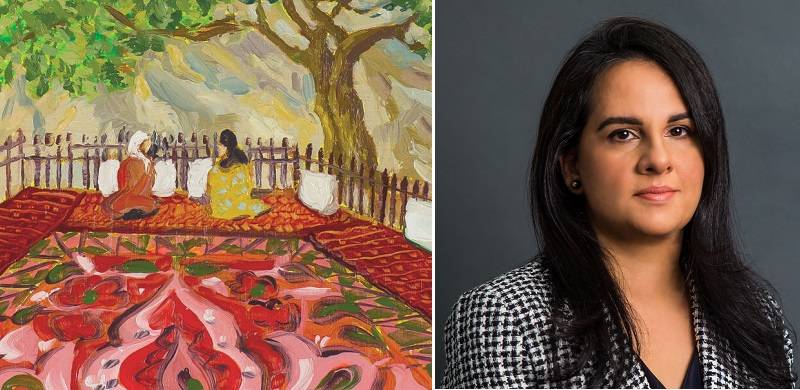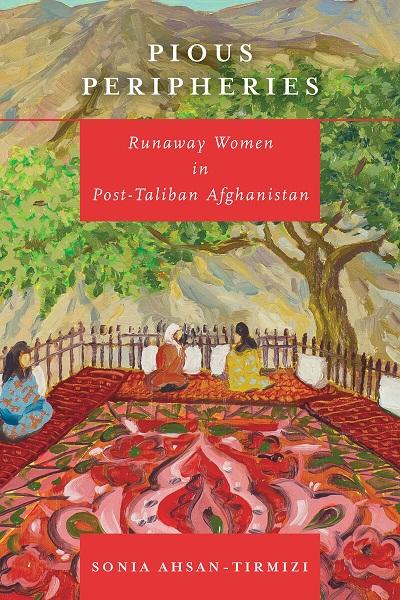
Once in the shelter, women are at the mercy of the state without family safeguards and, in some cases, suffer rape and other violence at the hands of officials in charge of protecting them.
Runaways or Escapees
The Supreme Court of Afghanistan made a distinction in 2012 between running away because of domestic violence and running away with the intention of committing a moral crime. The decree states that "running away" should be used for cases in which women have run away to escape abuse and therefore should not be prosecuted.
The law does not stipulate a mandatory waiting period to be observed before divorcing missing husbands, but does leave open the possibility of charging women for moral crimes if an intent to commit zina (adultery) is established. Many women claim that their husbands have joined the Taliban and gone missing.
Social functions of poetry in the women’s refuge
Islam and Pashtunwali imbue the poetry of the women.
 On one occasion we were leaving to go to court with Naghmana, whose lover, Osman, claimed to have joined the Taliban. She had initially wanted to marry him, without knowing much about him. As we headed out a woman called out:
On one occasion we were leaving to go to court with Naghmana, whose lover, Osman, claimed to have joined the Taliban. She had initially wanted to marry him, without knowing much about him. As we headed out a woman called out:When you meet your lover
Tell him you will kiss him tomorrow
Understanding the tone of envy, Naghmana gave an immediate rejoinder:
How will I meet him tomorrow, you fool?
He will die on his way home today
He ran away to become a Talib
Now a recluse, I cross the city alone
Who told you I was running away tonight?
The liars are wagging their tongues in gossip
Let us dig the graves now
They say winter will end soon
Naghmana explained these verses to me, referring to the incomprehensibility of her lover’s decision, which would certainly lead to his death. As such, Naghmana and other women whose husbands had joined the Taliban took this move as their abandonment. Through this short landay/poem, the difficulties of endless waiting were expressed. The other significant reference here is to winter ending and the fighting season commencing consequently the graves for Talib casualties are dug.
Sadia, whose husband had joined the Taliban tried to cheer Naghmana by offering these verses:
Will you abandon him when he becomes a Talib?
Run far away from a madman
His grave calls him to Kajaki each night
Let’s meet there with your new lover
Naghmana contemplated whether she should marry Osman before he disappeared. Eventually she decided to marry him and leave the refuge. A few months later, she was pregnant and living with a distant aunt; and as we had predicted, Osman had disappeared. The author states “Most men who joined the Taliban, like Sadia’s husband, were eventually killed […] leaving behind women who depended on them for love or sustenance.”
A young married woman in the refuge was a victim of sexual abuse within the extended family. Her father-in-law had abused her. Another young unmarried teenage female was detained by the police for running away from her home. Her landay (poem) tried to make sense of a work why the man who should have protected her, instead abused her The Government subjected her to a virginity test – her hymen was broken. The police gang-raped her for her presumed sexual promiscuity. At the refuge, the teenager declared that she had been a virgin before Ashraf Ghani’s police forced themselves upon her.
The reasons women were in the refuge were myriad – from domestic violence, sexual abuse, abandonment or simply being ejected from their homes for demanding their share of the inheritance from male siblings. However, society looked upon the women in the refuge as being morally loose, when in fact that was not the case. With the advent of the Taliban victory in August 2021, these women’s refuges were abolished.
The author writes something very important about how academic writings are sometimes exploited by imperial powers for their own ends – which underlines also that her own writings should not be weaponised for purposes of colonialism.

